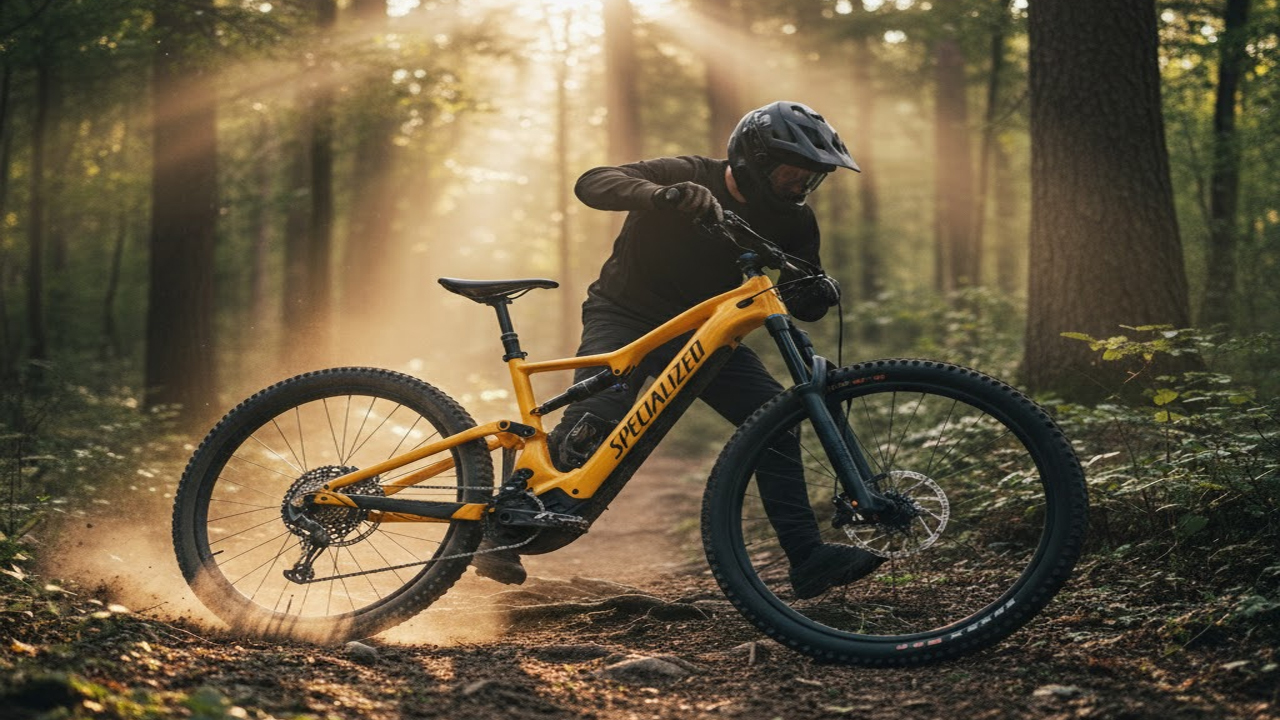The Specialized Turbo Levo has long been one of the most popular electric mountain bikes, praised for its power, handling, and advanced motor system. However, a recent lawsuit has brought the model into the spotlight for very different reasons. A rider from Washington state has filed a case against Specialized, claiming that a motor defect caused him to crash and sustain serious injuries. The case has sparked debate within the cycling community about e-bike safety, manufacturer responsibility, and the balance between innovation and reliability.
The Rider’s Allegations
According to the lawsuit, the rider was using his Turbo Levo on a trail in Oregon when the bike allegedly malfunctioned. He claims that the motor provided unexpected power beyond the selected assist mode, a condition referred to as “overrun.” This sudden surge of assistance reportedly caused the rear wheel to spin out on loose terrain, leading to a crash that left him with multiple broken ribs. The rider argues that this overrun effect is a known issue with the Turbo Levo motor system and that Specialized failed to adequately address or warn consumers about the potential risks.
Understanding the Overrun Feature
Overrun is a feature built into many e-bike motors, including the Turbo Levo. It allows the motor to continue providing assistance for a short period after the rider stops pedaling. The purpose is to help riders maintain momentum when navigating technical climbs or obstacles. While useful in certain conditions, overrun requires adaptation and careful handling. The lawsuit claims that in the Turbo Levo, this feature can sometimes deliver more power than expected, especially in Eco mode, leading to unpredictable handling. The rider’s legal team argues that this design flaw directly contributed to the crash.
Specialized’s Position and Industry Context
Specialized has not publicly commented in detail on the lawsuit, but the company has historically emphasized the safety and reliability of its products. The Turbo Levo is one of its flagship e-MTBs, and thousands of riders worldwide use it without incident. In the broader industry, overrun is not unique to Specialized; other e-bike manufacturers also incorporate similar features. The difference lies in how the system is tuned and whether riders are adequately informed about its behavior. The case raises questions about whether manufacturers should provide more customization options or clearer warnings regarding motor assistance features.
The Incident on the Trail
The crash reportedly occurred while the rider was descending a steep section of trail before transitioning onto a flat area of loose shale. As he entered a loamy surface beyond the shale, the rear wheel spun out due to the unexpected motor surge. The rider lost control and fell heavily, hearing the sound of ribs cracking upon impact. When he regained awareness, he saw the bike lying on its side with a deep rut carved into the trail, evidence of the sudden wheel spin. The physical injuries required medical attention and have become central to the damages sought in the lawsuit.
Legal Implications for Specialized
The lawsuit has significant implications for Specialized and potentially for the e-bike industry as a whole. If the court finds that the Turbo Levo’s motor system has a design defect, it could lead to recalls, compensation claims, or stricter regulations on e-bike safety standards. Manufacturers may be required to provide more transparency about motor behavior or offer adjustable settings to minimize risks. For Specialized, the case could impact its reputation as a leader in innovation and performance, especially if consumers begin to question the safety of its flagship models.
The Broader Debate on E-Bike Safety
E-bikes have surged in popularity over the past decade, offering riders new ways to explore trails and commute efficiently. However, their increasing power and complexity have also raised safety concerns. Features like overrun, regenerative braking, and high-torque motors can enhance performance but also introduce risks if not properly managed. The Turbo Levo lawsuit highlights the tension between pushing technological boundaries and ensuring rider safety. It also underscores the importance of rider education, as many users may not fully understand how advanced motor systems behave in different conditions.
Rider Responsibility Versus Manufacturer Duty
One of the central questions in this case is where responsibility lies. Riders are expected to adapt to the unique characteristics of their bikes, especially when using advanced features. At the same time, manufacturers have a duty to design products that are safe and predictable. The lawsuit argues that Specialized failed in this duty by releasing a bike with a motor system that could behave unpredictably. Specialized may counter that the feature is intentional, widely used in the industry, and safe when used correctly. The outcome of the case could set a precedent for how courts view the balance of responsibility in e-bike accidents.
Potential Outcomes of the Case
If the rider succeeds in his lawsuit, Specialized may face financial damages and be compelled to modify its motor systems. This could include software updates to adjust the overrun feature or hardware changes in future models. A settlement is also possible, which would resolve the case without a court ruling but still raise awareness of the issue. On the other hand, if Specialized successfully defends the design, it may reinforce the idea that riders must adapt to the unique characteristics of e-bikes. Either way, the case is likely to influence how manufacturers approach motor design and rider communication in the future.
Impact on the Cycling Community
The lawsuit has already sparked discussion among mountain bikers and e-bike enthusiasts. Some riders sympathize with the plaintiff, arguing that manufacturers should prioritize safety over performance. Others believe that e-bikes, like all high-performance machines, require skill and adaptation, and that accidents are an inherent risk of the sport. The debate reflects broader questions about how new technologies should be integrated into cycling culture and what standards should govern their use.
Lessons for Riders and Manufacturers
For riders, the case serves as a reminder to thoroughly understand the features of their e-bikes and practice in controlled environments before tackling challenging terrain. For manufacturers, it highlights the importance of clear communication, robust testing, and offering adjustable settings that allow riders to tailor motor behavior to their preferences. The lawsuit may encourage the industry to adopt more transparent practices, ensuring that riders are fully aware of how their bikes will respond in different scenarios.
Conclusion
The Specialized Turbo Levo lawsuit is more than just a legal dispute; it is a reflection of the growing pains of a rapidly evolving industry. As e-bikes become more powerful and sophisticated, questions of safety, responsibility, and design will continue to arise. Whether the court sides with the rider or Specialized, the case will likely influence future product development and consumer expectations. For now, it serves as a cautionary tale about the importance of understanding advanced e-bike features and the need for manufacturers to balance innovation with safety.

